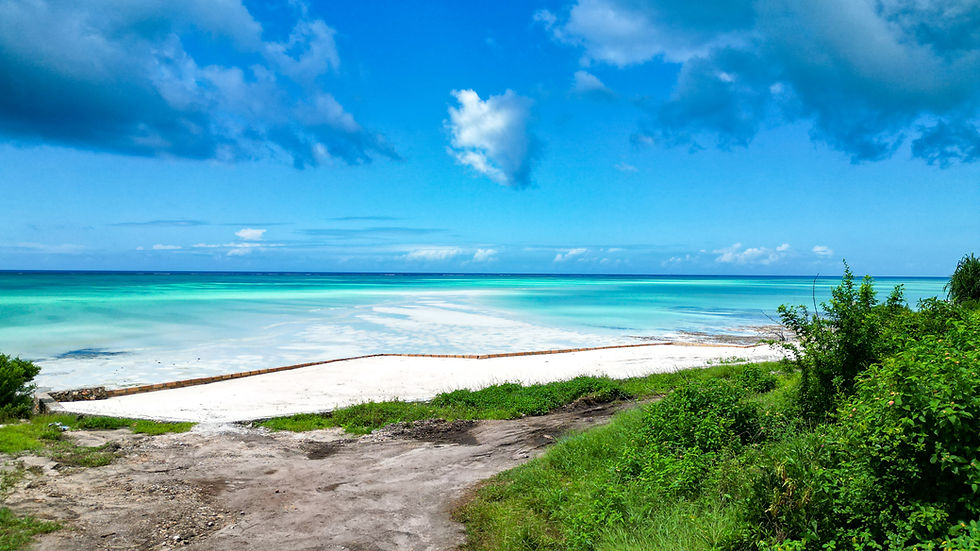The Growth and Promise of Zanzibar's Real Estate Market
- Zanzibar Luxury Properties

- Sep 1, 2024
- 3 min read

Zanzibar's real estate market is on the rise, attracting both local and international investors with its blend of natural beauty and promising economic prospects. As the global real estate sector continues to grow, Zanzibar is emerging as a key player in the region, driven by a steady influx of new developments and increasing demand. This article explores the current landscape of Zanzibar's real estate market, its connection to tourism, and the government's efforts to create a conducive environment for sustained growth.
The global real estate market is set to reach an astonishing US$637.80 trillion in value this year. Residential real estate is expected to be the leading sector, contributing a significant US$518.90 trillion. On a more local scale, Mauritius has successfully attracted new investments through various real estate initiatives.
In Mauritius, the residential real estate market is expected to hit US$14.39 billion this year and could grow to US$16.08 billion by 2028. The island's natural beauty, coupled with enticing incentives like immediate permanent residency for those who invest US$375,000 in approved projects, has made it a magnet for investors. These incentives even offer a pathway to citizenship within 5 to 7 years.
Turning to Zanzibar, the real estate market is still in its early stages, yet the potential for growth is undeniable. According to a report from theafricainvestor.com, both Zanzibar and Dodoma are ranked among the top ten cities in Africa for high rental yields. Zanzibar secured the 7th spot, with Dodoma coming in at 9th. The report highlights that Tanzania’s stable leadership and democratic system have contributed to steady economic growth, laying a strong foundation for the real estate sector.
In Zanzibar, real estate has become a significant focus for new investments, with around 50 development projects currently in progress. Existing developments have seen strong performance and increasing demand, as people look for their own slice of paradise. For example, CPS Africa, the developers behind Fumba Town, have sold over 1,500 units, handed over more than 800 homes to buyers from around 60 different countries, and have seen their investment volume grow to US$400 million.
The growing demand for residential real estate in Zanzibar is being driven by various factors, including population growth, the island's natural beauty, and a surge in tourist numbers. There is a clear connection between the rise in tourism and the demand for luxury holiday homes. Real estate agents and developers have noted that interest in property acquisition peaks during the tourist high season. This relationship between tourism and real estate is mutually beneficial, with the growth in one sector helping to boost the other.
Foreign homeownership in Zanzibar also has potential benefits for the tourism industry, as these owners are likely to become repeat visitors. Encouraging homeowners to visit during the low season and rent out their properties during the high season could help mitigate the economic impact of the quieter months.
Recognizing the immense opportunities that real estate presents, the Zanzibar government has taken proactive steps to foster a supportive environment. A Real Estate Directorate has been established within the Ministry of Lands, and the introduction of "golden visas" (Class C11 residency) is a promising development. Through this scheme, individuals who purchase property worth at least US$100,000 in ZIPA-approved projects become eligible for residency permits for themselves, their spouses, and up to four children under 18.
Looking Ahead
Zanzibar’s charm continues to captivate both tourists and investors. However, for the island to sustain its upward trajectory, complacency must be avoided. The government must continue working with all stakeholders to enhance the legal and regulatory frameworks, provide reliable market intelligence, embrace digital transformation, and streamline processes to reduce red tape.
Ultimately, whether in real estate, tourism, or other sectors, the focus should always be on how these developments benefit the people of Zanzibar.
Source: https://zibi.co.tz/






Comments